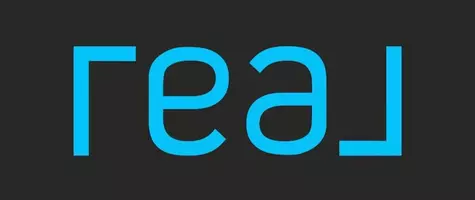What North Carolina’s New Wholesaling Rules Mean for Off-Market Deals After October 1
 What North Carolina’s New Wholesaling Rules Mean for Off-Market Deals After October 1:
What North Carolina’s New Wholesaling Rules Mean for Off-Market Deals After October 1:Quick status check (as of September 25, 2025): House Bill 797—“Residential Property Wholesaling Protection”—passed the NC House and is in the Senate. If enacted as written, it would take effect October 1, 2025 and apply to purchase contracts entered into on or after that date. The bill treats residential wholesaling as real estate brokerage (requiring a broker license) and gives homeowners a non-waivable 30-day right to cancel with prompt refunds. Legislative Reporting Service+3North Carolina General Assembly+3LegiScan+3
The big shift: Wholesaling becomes licensed activity
HB 797 amends Chapter 93A so that soliciting a homeowner to sign a purchase contract, marketing/assigning contracts or equitable interests, or dealing in options on residential property is classified as brokerage. Practically, that means participants must hold a NC real estate broker license and operate under Commission rules and a BIC’s supervision. North Carolina General Assembly
Why that matters
-
Compliance & oversight: Licensed activity brings agency duties, advertising rules, record-keeping, trust-account handling when applicable, fair housing compliance, and potential discipline for violations. North Carolina Real Estate Commission
-
Consumer protections: Sellers would gain a 30-day, non-waivable cancellation window and, if they cancel, a refund within 10 business days plus potential remedies under the Unfair and Deceptive Trade Practices law for violations. North Carolina General Assembly
What I expect to see in the off-market ecosystem
1) More deals handled by licensed pros—and cleaner paper trails
Because the core conduct is treated as brokerage, I expect a migration from informal assignment chains to transactions run by licensees, with clearer disclosures and better documentation (agency agreements, written offers, disclosures). This should reduce gray-area practices that NCREC has previously warned can be unlicensed brokerage. NCREC Bulletins
2) Some “assignment-style” inventory showing up in the MLS—selectively
Not every wholesale-style opportunity fits the MLS, but when a licensed broker represents a seller and “client’s best interest” points to maximum exposure, you can expect more of those properties to be listed rather than quietly assigned. Expect hybrid strategies too: pre-MLS preparation, investor-only windows, or “coming soon” where allowed—all with license-law-compliant marketing and disclosures. (Inference based on the bill’s licensure requirement and standard brokerage duties.) North Carolina General Assembly
3) Tighter marketing & lead-gen rules for “We Buy Houses” operators
Cold calls, texts, bandit signs, and social ads will need to comply with broker advertising standards, Do Not Call rules, and truth-in-marketing expectations. Non-compliant outreach risks both license discipline and UDTPA exposure under the bill’s “per se unfair or deceptive” language. North Carolina General Assembly
4) Fewer daisy-chain assignments; more straightforward contracts
With a 30-day seller cancellation right and broker oversight, the incentive shifts away from multi-party daisy chains toward direct, well-papered deals (traditional listings, option-to-purchase structured correctly, or brokered assignments with clear disclosure). North Carolina General Assembly
5) Investor calculus adjusts—but opportunities remain
Investors will still find value in distressed and off-market properties, but underwriting must price in compliance timelines (e.g., the 30-day rescission risk) and brokerage costs. Expect more investors to partner with or become licensees to source, value, and resell contracts within the rules. North Carolina General Assembly
What homeowners should know
-
You may receive offers from licensed brokers rather than unlicensed wholesalers.
-
If HB 797 becomes law, you’d have 30 days to cancel after signing a qualifying wholesale-style contract, with refunds due in 10 business days. Read the bold, 14-pt disclosures near the signature line. North Carolina General Assembly
What wholesalers/investors should do now
-
Confirm status and be ready for an Oct 1 start if enacted; watch the Senate calendar. North Carolina General Assembly
-
Align with a BIC or obtain your broker license if your model includes solicitation, marketing, or assignment of residential contracts. North Carolina General Assembly
-
Update contracts & disclosures to include the cancellation language and refund mechanics. North Carolina General Assembly
-
Tighten marketing to comply with license law and avoid UDTPA exposure. North Carolina General Assembly
Bottom line
If HB 797 takes effect on October 1, 2025, North Carolina’s off-market space won’t disappear—but it will professionalize. Expect more licensed oversight, clearer consumer rights, and, where it serves the seller, more properties exposed on the open market through the MLS.
—
I help sellers, buyers, and investors navigate both on- and off-market strategies across the Triad/Triangle—within the rules and with your best interests front and center. Want to talk through a plan or see which path fits your goals? Call/text (336) 567-5843 or visit and follow my Blog: JessicaJBRealtor.net.
Wholesalers! Let me help you through the licensing process and join me @ Real Broker to grow and scale your business!

Categories
- All Blogs (599)
- Buying/Selling Raw Land (34)
- Distressed/Foreclosure Education (42)
- Divorce in NC? Own Real Estate? You Should Know... (39)
- First Time Home Buyer Education (55)
- For Aspiring Agents (4)
- For NC Wholesalers (23)
- For Real Estate Agents (36)
- FSBO Tips (63)
- Holiday Moves (6)
- Homebuyer Tips (70)
- Homeowner Tips (77)
- Homesteaders (4)
- Keeping it Real (18)
- Market Forecast (17)
- Market Updates and Trends (80)
- My Story (1)
- NC Luxury Market Data (31)
- New Construction Homes (22)
- Real Estate Investor Education (97)
- STOP Renting! START Owning! (37)
Recent Posts










GET MORE INFORMATION

REALTOR® NCREA CREIPS | License ID: 312309

